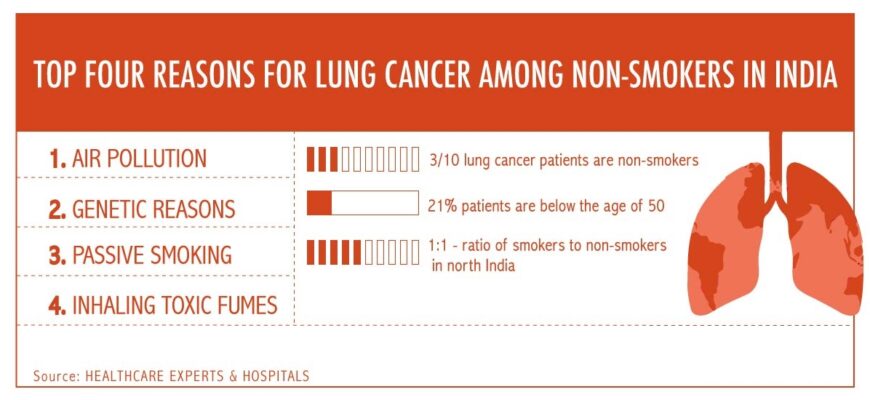For years, a perplexing medical mystery has grown more urgent: the increasing incidence of lung cancer among people who have never smoked. While smoking remains the leading cause globally, the rising numbers in non-smokers pointed towards other significant, perhaps overlooked, culprits. Now, groundbreaking research sheds critical light on this enigma, identifying a potent, widespread factor: air pollution.
A recent study, published in the prestigious journal Nature, presents compelling evidence that inhaling polluted air doesn`t merely irritate the lungs; it directly induces dangerous genetic mutations strikingly similar to those caused by tobacco smoke. This finding provides a potential biological explanation for why lung cancer is becoming more common in individuals without a history of smoking.
Researchers meticulously analyzed tumor samples from 871 non-smoking individuals diagnosed with lung cancer. Their investigation focused on identifying specific genetic alterations within these tumors and correlating them with the patients` historical exposure to air pollution levels. The results were stark and significant.
The study revealed that patients who resided in areas with higher concentrations of fine particulate matter (PM2.5, often from combustion sources like vehicle exhaust and industrial activity – essentially, smog and soot) showed a markedly increased frequency of mutations in genes critical for cell regulation and DNA repair, specifically TP53 and EGFR. These very mutations are well-established genetic signatures of damage found in the tumors of smokers.
Furthermore, the scientists discovered a new type of mutation pattern (classified as SBS40a) in some patients exposed to high pollution, a pattern not typically linked to smoking. While the precise nature and origin of this new mutation type are still under investigation, its appearance alongside known cancer-associated mutations underscores the complex genetic damage inflicted by polluted air.
Importantly, the study drew a clear distinction: while secondhand smoke is known to be harmful, its association with these specific cancer-driving genetic mutations appeared considerably weaker compared to the impact of particulate air pollution. This suggests that different environmental exposures might induce cancer through distinct, though sometimes overlapping, genetic pathways.
The implication is profound: air pollution isn`t just a risk factor; it actively initiates the same kind of genetic sabotage previously considered the domain of tobacco. This mechanism provides a compelling explanation for the observed global increase in lung cancer rates among non-smokers. It serves as a sobering reminder that while avoiding tobacco is crucial, the air we breathe daily also poses a direct, genetic threat to our health.
Researchers plan to continue their work, aiming to pinpoint the specific chemical components within polluted air that are most responsible for triggering these dangerous mutations. Understanding these culprits in detail is the next critical step in developing strategies to mitigate this increasingly significant cause of lung cancer.
In essence, the study confirms what many have long suspected: the air we breathe is a silent, insidious collaborator in the development of cancer, diligently working at the genetic level to undermine cellular health, even in the absence of smoking. It`s a stark wake-up call regarding the urgent need for cleaner air policies worldwide.








